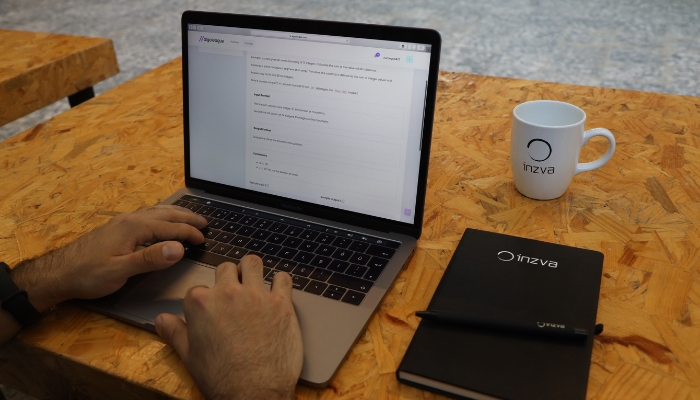
Did you know that South Carolina ranks 8th in the nation for evictions? If you’re interested in learning more about eviction records in this state, you’re in the right place. This guide will walk you through the steps to look up eviction records in south carolina.
To look up eviction records in South Carolina, start with the local Magistrate Court, which may offer online access or require an in-person visit. This step is important for legal research, background checks, or personal inquiries into eviction histories.
You’ll discover how to navigate the system, what information you can expect to find, and how to use this data responsibly. Whether you’re a tenant, landlord, or a curious researcher, understanding South Carolina’s eviction records can offer valuable insights. Let’s delve into the process of look up eviction records in south carolina and demystify eviction records in South Carolina.
Understanding Eviction Records in South Carolina
South Carolina’s eviction records can provide essential insights into a tenant’s rental history, helping you make informed decisions. An eviction records search isn’t just a cursory glance; it’s a detailed examination of a person’s past behavior in rental situations.
The availability of eviction records allows you to see if a prospective tenant has had any eviction actions taken against them. This could include a formal eviction lawsuit filed in a court of law. It’s important to understand that an eviction lawsuit doesn’t always result in eviction. Still, it does suggest there may have been serious issues between the tenant and the landlord.
By conducting an eviction record search, you’ll find out if a tenant has been legally evicted. This could indicate a pattern of behavior, such as consistently not paying rent or violating lease terms. This information is crucial as it can help you avoid potential problems in the future.
Legal Framework for Evictions in South Carolina

South Carolina Laws Governing Evictions
In South Carolina, the legal framework for evictions is primarily governed by state laws that outline the process and conditions under which a landlord can legally evict a tenant. The eviction process typically begins with a notice to the tenant, specifying the reason for eviction, such as non-payment of rent or violation of lease terms. This process is overseen by the magistrate courts, which handle most eviction cases in the state.
The South Carolina Residential Landlord and Tenant Act provides the legal basis for evictions. It requires landlords to follow a strict procedure, ensuring that tenants’ rights are protected. For instance, before proceeding to the circuit court for an eviction order, landlords must give tenants a written notice and an opportunity to rectify the issue, if applicable.
In cases involving non-payment of rent, landlords must provide a five-day notice to pay or vacate. If the tenant fails to comply, the landlord can file an eviction lawsuit in the magistrate court. It’s important to note that all official records of the eviction process, including notices and court orders, are maintained as public records.
Tenant and Landlord Rights and Responsibilities
Tenants’ rights in South Carolina include the right to a habitable living environment, the right to be notified in advance of any eviction proceedings, and the right to defend themselves in court. Tenants can challenge an eviction if they believe it’s based on discriminatory reasons or in retaliation for complaints about unsafe living conditions.
Landlords’ responsibilities include maintaining the property, making necessary repairs, and respecting the tenants’ privacy. They must also handle security deposits according to state law, which includes returning them within a specified period after the tenancy ends, minus any deductions for damages beyond normal wear and tear.
Both parties have the right to seek legal actions if the other party violates the lease terms or state laws. For example, tenants can sue for consequential damages if a landlord illegally evicts them, causing loss of property or other damages.
In the event of disputes, either party can seek resolution through the civil courts. The family and juvenile courts may also be involved in cases where eviction affects child custody or welfare.
Public service agencies in South Carolina offer resources and assistance to both tenants and landlords navigating the eviction process. These include legal aid societies and housing counselors who can provide information on eviction search, tenant rights, and landlord obligations.
In conclusion, understanding the legal framework for evictions in South Carolina is crucial for both landlords and tenants. It ensures that the eviction process is conducted fairly and legally, respecting the rights and responsibilities of both parties.
Accessing Eviction Records in South Carolina

Step-by-Step Guide to Accessing Eviction Records in South Carolina
Accessing eviction records is a state-specific process, whether you’re looking in South Carolina or seeking eviction records in Pennsylvania. These records are a matter of public record and can provide valuable information for landlords, tenants, and legal professionals. Here’s a step-by-step guide to accessing these records:
- Identify the Relevant Court: Eviction cases are typically handled by magistrate courts in South Carolina. Determine the court where the eviction case was filed. This is usually in the county where the property is located.
- Visit the Court’s Office or Website: You can access eviction records either in person or online. For in-person searches, visit the clerk of court’s office during office hours. Many counties also offer online access to these records through their official websites.
- Search by Name or Case Number: When searching for an eviction record, you can use the tenant’s name or the case number. Public records databases often allow for both types of searches.
- Request Copies of Records: Once you find the relevant record, you can request copies. There might be a fee for copies, which can usually be paid by credit card or debit card.
- Review the Record: After obtaining the record, review it for the information you need, such as the reason for eviction, the outcome of the case, and any money judgments made.
- Understand Redaction Policies: Some personal information might undergo redaction from public records for privacy reasons, as state law mandates.
- Use Third-Party Websites with Caution: While some third-party websites offer eviction record searches, ensure they are reputable and understand their fees and data sources.
Public and Private Sources for Eviction Records
Public Sources:
- County Magistrate Courts: The primary source for eviction records. Each county’s magistrate court maintains records of eviction cases filed within its jurisdiction.
- South Carolina Judicial Department: Offers an electronic court record system where you can search for eviction records across the state.
- National Archives and Records Administration (NARA): Provides access to federal eviction cases, though less common.
Private Sources:
- Online Databases: Various online platforms aggregate public records, including eviction records, from multiple sources. These may require a subscription or fee.
- Background Check Services: These services can include eviction records as part of a comprehensive background check, often used by landlords or employers.
- Legal Research Services: Offer detailed searches and may provide more extensive information, including related legal actions and civil court judgments.
In conclusion, accessing eviction records in South Carolina involves a mix of public and private sources. Whether you’re a landlord conducting a background check, a tenant reviewing your rental history, or a legal professional, understanding how to navigate these sources is essential. Always ensure that your search complies with legal guidelines and respect the privacy and legal rights of individuals involved.
Utilizing Eviction Records Responsibly
In light of accessing eviction records, it’s crucial to understand how to use this information responsibly and ethically. As a property owner or property management company, you have a duty to handle this sensitive data with care.
Eviction records are part of public access data in many states, including South Carolina and South Dakota. Knowing how to get eviction records in South Dakota can be as important as understanding them in South Carolina. However, this doesn’t mean they should be used indiscriminately. Use them to evaluate the potential risks associated with renting to a particular tenant, but avoid making snap judgments based solely on these records. Eviction doesn’t always equate to a bad tenant, as financial hardships can strike anyone unexpectedly.
Moreover, remember that you should never use eviction records for discriminatory practices. Doing so not only goes against ethical guidelines, but it’s also illegal. Therefore, it’s essential to balance the need for tenant screening with respect for individuals’ rights and privacy.
Lastly, always maintain transparency with prospective tenants about your screening process. It’s not just about being professional—it’s about being fair and respectful. Remember, responsible use of eviction records is a powerful tool in property management, but it must be wielded with caution and integrity.
Eviction Trends and Updates in South Carolina

In recent years, South Carolina has witnessed notable shifts in its eviction trends, influenced by various factors including economic changes and legislative updates. Understanding these trends is crucial for both tenants and landlords navigating the eviction process.
The Rise in Eviction Cases
The number of eviction cases in South Carolina has seen an uptick, particularly in densely populated areas like Greenville County. This increase can be partly attributed to the economic challenges faced by many residents, leading to difficulties in meeting rental obligations. Family Court cases involving child support and child custody matters have also indirectly impacted housing stability for many families.
Impact of COVID-19 on Evictions
The COVID-19 pandemic brought significant changes to eviction policies. Temporary moratoriums on evictions were implemented to aid those affected by the pandemic. However, as these moratoriums have lifted, courts, including district court and municipal courts, are experiencing a backlog of eviction cases. This has led to a surge in search requests for eviction records, as both landlords and tenants seek to understand their rights and responsibilities.
Legal Changes and Tenant Protections
Recent legal changes in South Carolina aim to balance the scales between landlords and tenants. For instance, civil disputes of a civil nature, including evictions, are now handled with more scrutiny. Clerks of court and circuit court judges play a pivotal role in ensuring fair proceedings. Additionally, family courts often handle domestic relations cases that intersect with eviction cases, especially when they involve parental rights or child welfare.
Technology’s Role in Eviction Processes
Electronic transmission of court documents and the use of e-filing websites have streamlined the eviction process. This digital shift has made it easier for individuals to submit documents for recordation or access county court records search systems. Electronic access to court-ordered monies and child support payments has also become more prevalent, impacting the financial aspects of eviction cases.
Looking Ahead: Eviction Trends
Looking towards the future, we expect South Carolina criminal records, bankruptcy records, and credit reports to play a more significant role in eviction proceedings. Credit bureaus and debt collectors are likely to influence tenants’ ability to secure housing. Moreover, federal courts and appellate courts may see more cases challenging eviction laws, potentially leading to further legal reforms.
In conclusion, the landscape of evictions in South Carolina is evolving, with legal, economic, and technological factors all playing a role. It’s essential for all parties involved to stay informed about these changes to navigate the complexities of eviction proceedings effectively.
Conclusion
In conclusion, understanding and accessing eviction records, whether in South Carolina or in Rhode Island, requires knowledge of each state’s specific processes for eviction records in Rhode Island and South Carolina. It’s important to use this information responsibly, respecting privacy while making informed decisions.
Remember, eviction records offer valuable insights but they should never be the sole basis for your judgment. Stay diligent, professional and ethical in your research, and you’ll enhance your knowledge of South Carolina’s eviction landscape.
FAQs: Look Up Eviction Records in South Carolina
How long do eviction records stay on public records in South Carolina?
Eviction records typically remain on public records for seven years in South Carolina. However, the impact on a tenant’s credit score or credit reports may vary, as these records are handled differently by credit bureaus.
Can I access eviction records online in South Carolina?
Yes, you can access eviction records online through various county court records search systems. Electronic access to these records now offers a more user-friendly interface, enabling efficient search requests and easy retrieval of documents for recordation.
Are eviction records considered in family court cases?
Eviction records can be relevant in family court, especially in cases involving child custody matters or child support. You might use these records to assess housing stability, a factor in determining parental rights and child welfare.